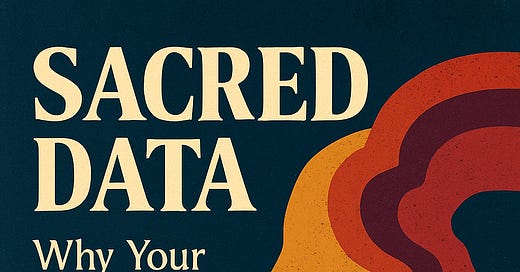Return to the Emotional Heresy Series Hub
Why Your Feelings Are Not a Flaw
A word to the reader:
There is a version of you—buried but still breathing—who never learned to question her feelings.
Who cried without shame.
Who laughed too loudly.
Who got angry when things were unfair.
Who felt grief like a flood, not a problem.
That version of you was not irrational.
She was accurate.
Your emotions were never the problem.
What broke you was being told that your data was defective.
I. We Were Told Our Feelings Were Liars
Many of us were raised with an emotional theology of distrust.
We were told:
“The heart is deceitful above all things.”
“Emotions change—truth does not.”
“Don’t be led by feelings. Be led by faith.”
So we learned to second-guess joy.
Suppress anger.
Distrust desire.
Minimize grief.
And override our intuition—even when it screamed.
We were taught that emotion was a barrier to discernment.
But the opposite is true:
Emotion is how the soul speaks.
II. Feelings Are Not Weakness. They’re Feedback.
Emotion isn’t the enemy of logic.
It’s the context logic needs to become meaningful.
Anger says: A boundary has been crossed.
Sadness says: Something mattered.
Fear says: Something feels unsafe.
Joy says: This is alignment.
Guilt says: A value is being challenged.
Anxiety says: Your system doesn’t trust something—but doesn’t know why yet.
This isn’t chaos.
This is pattern recognition.
This is embodied intelligence.
Your feelings aren’t flaws in the code.
They’re the code itself.
III. When You Abandon Your Feelings, You Abandon Your Wisdom
Discernment without emotion becomes cold, detached, performative.
It may look like “truth,” but it lacks resonance. It lacks humanity.
This is how people can:
Justify cruelty in the name of righteousness
Prioritize order over justice
Say “it’s not personal” while perpetuating harm
Interpret scripture without ever embodying compassion
When you cut off from your emotional data, you don’t become more faithful.
You become more programmable.
That’s why systems of control don’t just ignore feelings—they actively discredit them.
Because once you start trusting your own experience of harm, of injustice, of betrayal—
you might stop believing the people in power.
You might begin to believe yourself.
IV. Spiritual Discernment Requires Emotional Fluency
We’ve been told discernment is about logic and obedience.
But real discernment is relational. Embodied. Rooted in empathy.
Jesus didn’t ignore the woman at the well—he listened.
He didn’t dismiss Mary’s grief—he wept with her.
He didn’t shame the bleeding woman—he stopped the crowd to restore her dignity.
He wasn’t emotionally neutral.
He was emotionally present.
Because presence is what reveals truth.
Emotion is not the thing that leads us astray.
It’s the thing that calls us back to what’s real.
V. Reclaiming Emotion as Sacred: A New Theology of Feeling
Imagine if we treated our emotions like we treat spiritual gifts:
With reverence, curiosity, and responsibility.
What if we said:
“My grief is a sacred altar where something beautiful was lost.”
“My anger is a prophet calling out what’s been desecrated.”
“My joy is a signal from the Spirit that this path is aligned.”
“My fear is a teacher—not always right, but always worth listening to.”
What if your emotional body was not a weakness to conquer…
but a divine language you were born fluent in—and have finally remembered how to speak?
VI. A Question for Reflection
What feeling were you told was a flaw—but now you know is a form of wisdom?
How might your life change if you treated your emotions not as obstacles, but as oracles?




